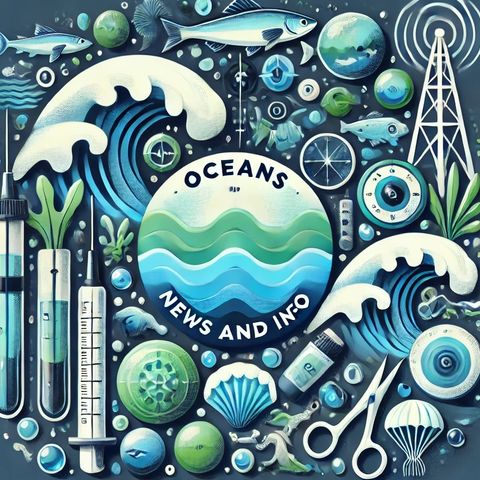Coral Reefs: Nature's Unsung Coastal Defenders Against Hurricanes and Diseases

Descarga y escucha en cualquier lugar
Descarga tus episodios favoritos y disfrútalos, ¡dondequiera que estés! Regístrate o inicia sesión ahora para acceder a la escucha sin conexión.
Coral Reefs: Nature's Unsung Coastal Defenders Against Hurricanes and Diseases
Esta transcripción es generada automáticamente. Ten en cuenta que no se garantiza una precisión absoluta.
Descripción
As coastal communities increasingly face the threat of hurricanes, an unexpected ally emerges in the battle to safeguard these vulnerable areas: coral reefs. While these marine structures are renowned for...
mostra másAmong the most alarming threats to coral health is the stony coral tissue loss disease (SCTLD), a particularly aggressive affliction that damages and destroys coral colonies. First identified off the coast of Florida in 2014, SCTLD has rapidly spread throughout the Caribbean, affecting over 20 species of stony corals. To combat this, biologists and researchers from the U.S. Geological Survey (USGS) are dedicating their efforts to understanding and mitigating the disease's impacts. Their work goes beyond the microscopic level, as they diligently peer through microscopes at tiny polyps and algal cells to unravel the complexities of SCTLD.
While the microscopic examination is critical, the broader implications of SCTLD's devastation are profound. Healthy coral reefs act as the first line of defense against hurricanes by dissipating wave energy, reducing flooding risks, and protecting coastlines from erosion. As corals die and reefs degrade, the vulnerability of coastal communities to storms increases, illustrating how the health of these distant ecosystems is intimately linked to human safety and well-being.
The burgeoning field of coral reef veterinarians exemplifies the innovative approaches being adopted to address this challenge. These specialists are akin to doctors for the reefs, employing novel techniques to diagnose and treat coral diseases. Their efforts include developing probiotics to boost coral health and resilience, discovering antibiotic treatments, and experimenting with interventions to halt or slow the progression of SCTLD in affected areas.
Engagement with local communities and conservation organizations is equally essential in the fight against SCTLD. Public awareness campaigns and participation in monitoring efforts can lead to the rapid identification of outbreaks, enabling timely responses. Moreover, restoration projects, such as coral nurseries and transplant programs, are being implemented to help rehabilitate damaged reefs and enhance their capacity to withstand future threats.
The stakes are high, as coral reefs not only protect coastlines but also support vibrant marine ecosystems, sustain fisheries, and facilitate tourism. As climate change continues to exacerbate coral stress through warming seas and ocean acidification, the environmental and economic stakes intensify. The work undertaken by USGS biologists and coral reef veterinarians represents a critical intersection of science, conservation, and community action, aiming to preserve these invaluable ecosystems.
Through their combined efforts, there is hope for mitigating the impacts of SCTLD and strengthening coral resilience to better withstand hurricanes. This multi-faceted approach underscores the need for continued research, innovation, and collaboration in the face of mounting environmental challenges. By protecting the health of coral reefs, we safeguard more than bio-diverse underwater worlds; we help secure the well-being of millions of people worldwide who depend on the vital services that these natural barriers provide.
Información
| Autor | QP-4 |
| Organización | William Corbin |
| Página web | - |
| Etiquetas |
Copyright 2024 - Spreaker Inc. an iHeartMedia Company
